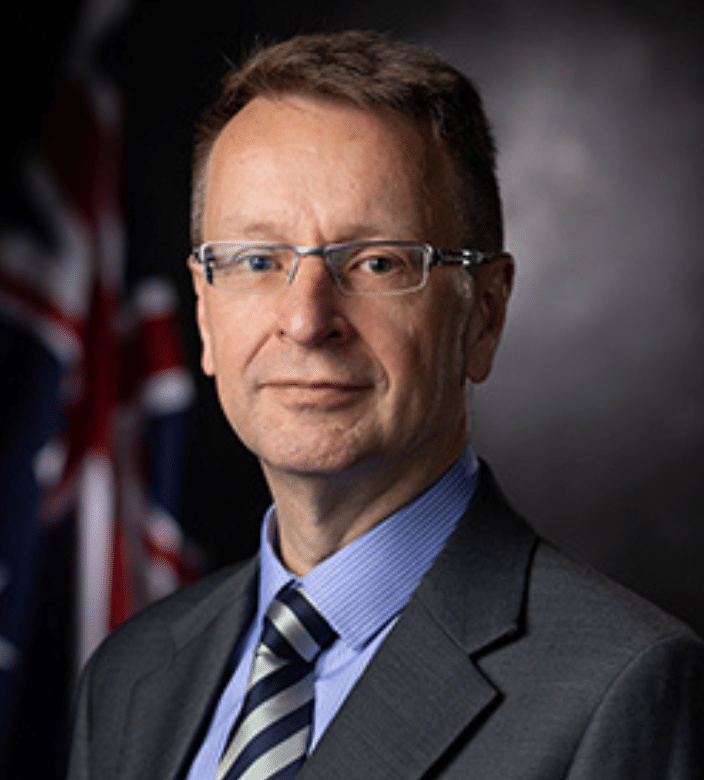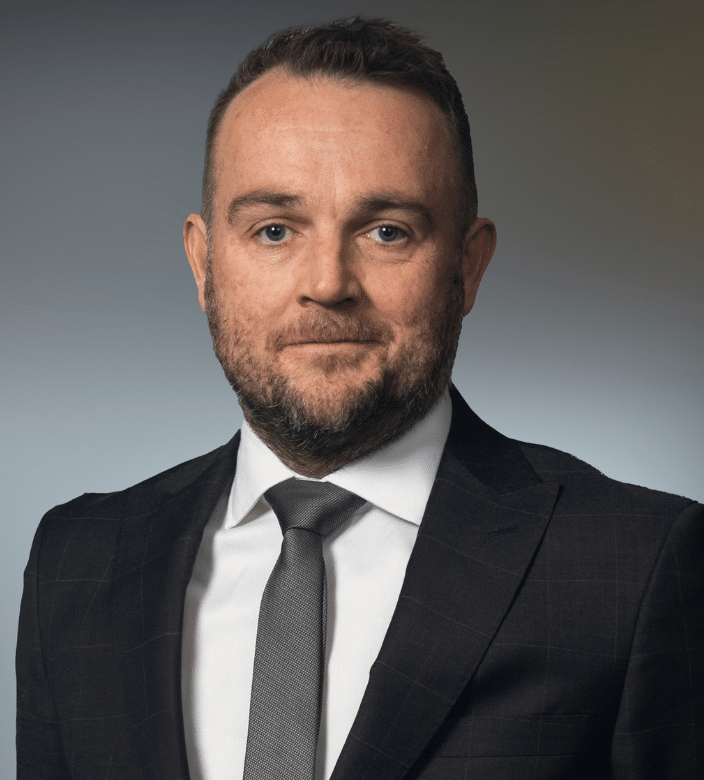Past Agenda
Thursday, 30 October 2025
“Simplification, Modernisation & Sovereign Capabilities”
Please note that 1:1 meetings will be running throughout the day.
Registration & Check-In
Secure your seat in the keynote room for the day.
Welcome to ADAPT Government Edge: "Simplification, Modernisation & Sovereign Capabilities"
Jim Berry - CEO & Founder at ADAPT
Based on feedback from APS peers, the theme is “Simplification, Modernisation & Sovereign Capabilities” – all easier said than done.
The day will create a safe place for the community to explore what matters most for public sector tech, digital, data and AI strategies. The aim is to leave with practical, meaningful memorable insights that can be acted upon.
Topics vary for the central and independent agencies with split tracks and boardroom roundtables for attendees to tailor their journey. We start this strategic gathering with unique local insights to help APS leaders with their challenges and goals.
Get an Edge: Making the Most of Your Day
Tenar Larsen - Head of People & Performance, Executive Programs
Government Edge Panel: The Sovereign CIO with the DoD, ATO, DHA
Chris Crozier - Chief Information Officer & Deputy Secretary at Defence Digital Group of Department of Defence Mark Sawade - Chief Information Officer at the ATO Radi Kovacevic - Chief Digital Officer at the Dept of Home Affairs


Three of Canberra’s leading CIOs join us to debate:
– How to uplift capabilities when constricted by aging platforms?
– Maintaining and modernising legacy systems and ERP – reducing complexity while managing Tech Debt
– How and if we can reach our goals through sovereign supply chains
– Leveraging powerful new resources and AI, while operationalising them safely and at pace?
– Navigating bureaucracy and dealing with expensive transformation program challenges
– APS capability uplift and attracting talent in an era of doing more with less
Modernising Government at Scale: In Conversation with Charles McHardie, Services Australia
Charles McHardie AM - CIDO at Services Australia Nicholas Flood - MD ANZ at IBM

As Chief Information and Digital Officer (CIDO) at Services Australia, Charles McHardie is leading one of the most complex and high-impact transformations in the public sector today. In this fireside chat, Charles will discuss the strategies driving whole-of-government platforms, what it takes to modernise at scale, and the key lessons shaping the next decade of digital reform.
This candid, insight-rich session aims to provide government CIOs and technology leaders with practical insights and actionable strategies for managing complex technology transformations, ensuring the Australian Public Service maintains its pace with ever-evolving citizen expectations and digital trends.
Charles McHardie AM serves as the Chief Information and Digital Officer (CIDO) at Services Australia, leading the largest technology group within the Australian Government. In this role, he oversees the technical and digital infrastructure that delivers essential government services—including Centrelink, Medicare, Child Support, and myGov—to millions of Australians. His responsibilities encompass driving digital transformation within Services Australia and spearheading whole-of-government technology initiatives.
ADAPT State of Australia: Maturity & Performance Insights Related to Public Sector
Matt Boon - Senior Research Director at ADAPT
ADAPT’s research team reveal the latest local fact-based insights from over 5000 interactions and 1000 detailed surveys with our nation’s enterprise and government CIOs, CISO, CFOs, CTOs, and digital leaders. This session will assist you in comparing the goals and unique challenges of Australian tech and digital leaders to benchmark and validate your priorities and thinking. Matt will also reveal the core findings distilled from your aggregated pre-event surveys and examine the tech strategies and correlations that are generating value.
Morning Break
Refreshments, snacks & connections
Delivering on the Citizen Services Gap with Constricted Resources
David Heacock - Former Chief Digital Innovation Officer, DXC & BCG Partner Lucy Poole - GM Strategy, Planning and Performance Division at the Digital Transformation Agency Jonathon Thorpe - Deputy CEO & Chief Customer Officer at Services Australia


Australian citizens increasingly expect seamless, digital-first interactions with government services. Despite significant advancements, a notable gap persists between these expectations and the current service delivery, particularly affecting vulnerable populations such as older Australians, Indigenous communities, and those in remote areas .
This panel will explore the multifaceted challenges contributing to this service gap, including:
- Skills Gap: Building workforce capacity for digital service delivery.
- Collaboration: Driving effective cross-agency integration and data sharing.
- Cybersecurity: Protecting citizen data to build trust.
Join us to delve into pragmatic solutions and collaborative strategies aimed at enhancing citizen services amidst resource constraints, ensuring that digital transformation efforts are inclusive, efficient, and trustworthy.
Lucy focuses on the WoAG strategic vision for world class digital capabilities through the development and implementation of digital policies, the Australian Government Architecture, and the Data and Digital Government Strategy.
Jonathon brings insights from his award-winning initiatives that have successfully narrowed service gaps through innovative, citizen-centric strategies and modernisation.
AI in the Australian Public Sector: ServiceNow’s Vision for the Public Good
Nick Herbert - Executive Director, Global Public Sector at ServiceNow
It’s an unprecedented time for government agencies—on a quest for significant efficiency gains, while enhancing resilience, and redefining operations to be more adaptable than ever before. AI is illuminating the path toward these previously unattainable outcomes. Leveraging AI strategically is no longer an option; it’s a necessity.
Join us to explore:
- Institute agency workflows to efficiently deliver real-time services to the public
- Optimise asset and resource management with AI-powered insights to uncover efficiencies
- Utilising AI and data to increase transparency and confidence in mission-critical decisions
AI for Australia: Empowering Sovereign Outcomes in Government Service Delivery
John Roese - Chief AI Officer & Global CTO at Dell Technologies Angela Fox - ANZ's Senior Vice President & Managing Director at Dell Technologies

Artificial Intelligence is no longer confined to pilot programs – it’s becoming a transformative force in public and private sector service delivery. In this insightful session, John Roese, Global Chief Technology Officer and Chief AI Officer at Dell Technologies, will explore how government agencies across Australia could leverage AI to drive sovereign outcomes at scale.
Join us to gain a deeper understanding of:
• Evolving Landscape and Strategic Priorities
• Systemic Barriers: Data, Skills, and Interoperability
• Sovereignty and Responsible AI
• Enablers for Scalable Impact
Whether you’re shaping policy, managing infrastructure, or leading digital transformation, this session offers practical insights into unlocking AI’s full potential for the nation.
ADAPT Executive Insight Roundtables
Attend your pre-selected roundtable to participate in a peer discussion with confidence under Chatham House Rule moderated by an ADAPT analyst with subject matter experts.
Sovereign Security – Safeguarding the Nation’s Digital Backbone
Clive Reeves - Deputy Global Chief Information Security Officer at Telstra
The latest Cyber Threat Report from the Australian Signals Directorate (ASD) highlights a stark reality: our Federal Government and critical infrastructure are prime targets for increasingly sophisticated cyber threats. These sectors aren’t just vulnerable—they’re high-value assets in the eyes of global threat actors. Security is no longer optional. It’s a strategic imperative.
In this roundtable, join Clive Reeves, Deputy Global Chief Information Security Officer at Telstra, for a compelling discussion on how collaboration across sectors is reshaping our national cyber defence. Discover why security is now a team sport—one that demands engagement from every level of our organisations.
What to expect:
- Insider insights into the evolving threat landscape from one of Australia’s leading telcos
- A deep dive into Telstra’s approach to building sovereign and secure AI systems
- A shared mission: how Telstra and the Federal Government have aligned missions to protect Australia’s most vital assets
New Ways to Harness the Power of AI, Data and Innovation: How Others Are Navigating This Change, to Deliver Better Outcomes for Individuals, Businesses and the Economy
Angelo Joseph - Head of Cloud Engineering at Oracle Australia and New Zealand Kirsty Linehan - Chief Public Sector Advisor at Oracle Japan and Asia Pacific

• Explore global trends in AI, data, and technology, along with common risks and how to manage them.
• Hear practical examples of how these tools are being used to solve complex government challenges.
• Discuss leadership strategies for driving change and learn from others tackling similar goals, both locally and globally.
The Information Gap: Key Considerations for Modernising your ERP
with SAPIn a time when maintaining and modernising legacy ERP systems is top of mind for public sector, understanding options, security requirements and how to address new technologies like AI, are key considerations that need to be addressed. But how do agencies approach this? Hear how organisations are navigating their modernisation journey – in a time of budget and resource constraints.
Key takeaways:
– Understand Cloud ERP options and how to navigate the decision-making process
– Get clarity on security requirements and how to address them
– Realise time-to-value for an ERP transformation
– Understand why addressing AI, data, and applications together is essential for future innovations.
From Zero to Eight: Cyber Uplift in Government as Critical Infrastructure
Sarah Sloan - Senior Director, APAC Government Strategy at Splunk Tim Neal - Assistant Secretary, Commonwealth Security Policy Branch at Home Affairs

With government recognised as part of Australia’s critical infrastructure ecosystem, cyber resilience is an operational imperative. Yet uplift isn’t without its challenges—agencies are navigating legacy systems, limited resources, and an increasingly complex compliance and technology environment.
This session will unpack how government organisations can continue building on existing progress to embed the Essential Eight, zero trust and uplift cyber maturity in a sustainable, strategic way. It will also unpack recent changes to the Protective Security Policy Framework (PSPF) and what they might mean for government organisations.
We will be joined by a senior government speaker who will share their insights into current government priorities, and how uplift is being enabled across jurisdictions – exploring lessons from the field on translating policy into practice—balancing risk, compliance, and resilience to protect critical services and public trust.
Peer Networking Seated Lunch
Join us for relaxed peer networking and great food, upstairs in the Heritage ballroom
ADAPT Executive Insight Roundtables
Attend your pre-selected roundtable to participate in a peer discussion with confidence under Chatham House Rule moderated by an ADAPT analyst with subject matter experts.
The Government Edge: Modernising ERP for Innovation and Operational Excellence
Shan Moorthy - Chief Technology Office APAC at Workday
Government agencies face a unique imperative: to deliver enhanced public services and drive digital transformation while rigorously managing technology proliferation, technical debt, and cybersecurity risks. This session, led by Shan Moorthy, CTO APAC at Workday, will explore actionable strategies for achieving this critical balance through ERP modernisation.
Discover how modernising your enterprise resource planning can empower agencies to streamline operations, optimise resource allocation, and foster a culture of continuous innovation. We’ll delve into the transformative potential of a modern cloud platform – examining its vision for delivering tangible ROI for government CIOs, its profound implications for public sector efficiency, and the essential considerations for managing its adoption and associated risks. Join this roundtable to gain insights that will help propel your agency’s digital agenda forward.
The Sovereignty Spectrum: Where Does Technology Fit?
Andrew Weir - Federal Manager at Brennan Dave Stevens - Managing Director at Brennan

Australia’s public sector is under pressure. Rising cyber threats. Talent scarcity. Complex procurement reform. The list runs longer than a federal bill at first reading. Compounding it all: global uncertainty. It’s making the need for digital sovereignty more material than ever. The problem is: full autonomy is hard. But could we be doing more with the talents and capabilities already in our own backyard?
In this roundtable, we’ll open up the conversation around:
1.The sovereignty spectrum: what agencies really need.
2.The trade-offs between local control, global scale, and operational simplicity
3.Could local shared services be the antidote to global dependencies?
4.How sovereign tech can benefit from a homegrown mindset
5.What to ask of your technology partners – and how to ensure you’re getting a return.
From Cloud Chaos to Citizen Trust: The Observability Advantage
with DynatracePublic sector leaders are embracing unified observability to simplify multi-cloud environments, boost resilience, and improve citizen service delivery. By integrating observability with AIOps and automation, agencies can break down silos, reduce operational costs, and make faster, smarter decisions based on real-time insights. This session will explore how observability can evolve from a technical overhead to a strategic driver of trust, performance, and public value.
Discussion Points:
• How can observability support AI adoption and in-house delivery capabilities?
• Strategies for reducing log data costs without sacrificing insight
• Embedding observability into agency culture and operations
• Improving service reliability and citizen experience through real-time visibility
Unlocking Sovereign Capabilities with Enterprise Open Source
with Red HatAs digital technologies continue to advance, government agencies across the globe have raised concerns around data privacy and control, driving the need to have sovereignty capabilities in their pursuit to modernise, innovate and deliver data-driven citizen centric experience.
We will look to discuss how enterprise open source helps unlock sovereignty capabilities for the the Australian government by
• Overcoming technical challenges that impedes innovation
• Controlling data, improving security and gaining independence in their cloud journey
• Driving trustworthy, innovative, data-centric citizen centric services that are cost effective
Afternoon Break
How to Do More with Less? Canberra’s Quiet Cost Containment Revolution: Rapidly Rising SaaS Adoption
Judy Hurditch - MD & Principal Analyst at Intermedium
The government faces significant economic and social challenges, driving deep spending cuts to achieve surplus budgets. This has reduced external budgets for many agencies, placing intense scrutiny on ICT projects. However, foundation digital initiatives still attract funding. In this constrained environment, agencies must present robust, outcomes-focused business cases, especially for internal systems, to justify investment amid competing priorities. With budgets under intense pressure, the quiet but rapid uptake of Software-as-a-Service (SaaS) solutions should be no surprise.
This session will highlight
• The rate at which SaaS is being adopted by agencies
• Commonly adopted SaaS solutions and their key drivers
• The critical components of a successful SaaS business case
From Theory to Practice: The Key Ingredients for AI-Driven Impact in the Public Service
Nicholas Fletcher - AI practice, QuantumBlack at McKinsey & Company
– Strategic resource allocation: learn how to identify and prioritise areas where AI can truly make a difference, ensuring that limited resources are directed towards the most impactful initiatives
– Responsible investment: thoughtful and ethical investment in AI technologies, emphasising the responsible use of public funds to achieve sustainable outcomes
– Global success stories: draw inspiration from real-world examples of organisations around the world that have successfully leveraged AI to improve public services and enhance citizen lives
– Scaling through partnerships: explore the power of collaboration and how strategic partnerships can help scale AI initiatives, maximising reach and effectiveness
The Algorithmic Public Servant: Reimagining Government in the Age of AI
Prof. Marek Kowalkiewicz - Professor and Chair in Digital Economy at Centre for Future Enterprise, QUT Business School
Governments face a unique challenge: they must regulate the algorithmic economy while transforming into algorithmic enterprises themselves.
But as private sector AI adoption surges, governments lag behind, constrained by legacy systems, data silos, and institutional inertia.
Marek will explore how AI fundamentally changes the nature of government work and citizen services. Drawing from his book “The Economy of Algorithms” and research on Government 5.0, we’ll examine:
- How autonomisation moves beyond automation – from following rules to pursuing citizen outcomes
- Why traditional departmental structures block innovation and how AI enables whole-of-life services
- International lessons from Poland’s mCitizen and digital governance
- The challenge of regulating when algorithms become economic agents
- Practical strategies for overcoming government-specific barriers to AI adoption
Through surprising examples of AI behaviour and real-world case studies, discover how governments can evolve from service providers to life partners for citizens, where interventions become exceptions rather than the norm.
(Warning: This session may cause uncontrollable urges to break down departmental silos and implement mass policy simulation. Side effects include rethinking everything you thought you knew about government transformation!)
Closing Comments
Government Edge Post Event Networking (Alcohol Free)
An opportunity to stay, mingle and meet other attendees and discuss the day.











